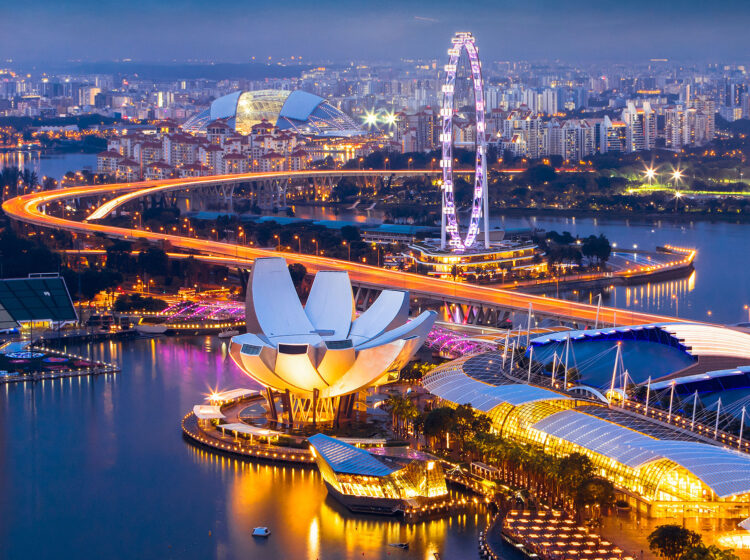Having previously established itself as the gold standard in the operation and regulation of integrated resorts in Asia following the 2010 openings of Marina Bay Sands and Resorts World Sentosa, Singapore is leading the way yet again as it rapidly emerges from the COVID-19 pandemic. And with a brand-new gaming regulator and both IRs set to undergo massive expansion projects, the best is yet to come.
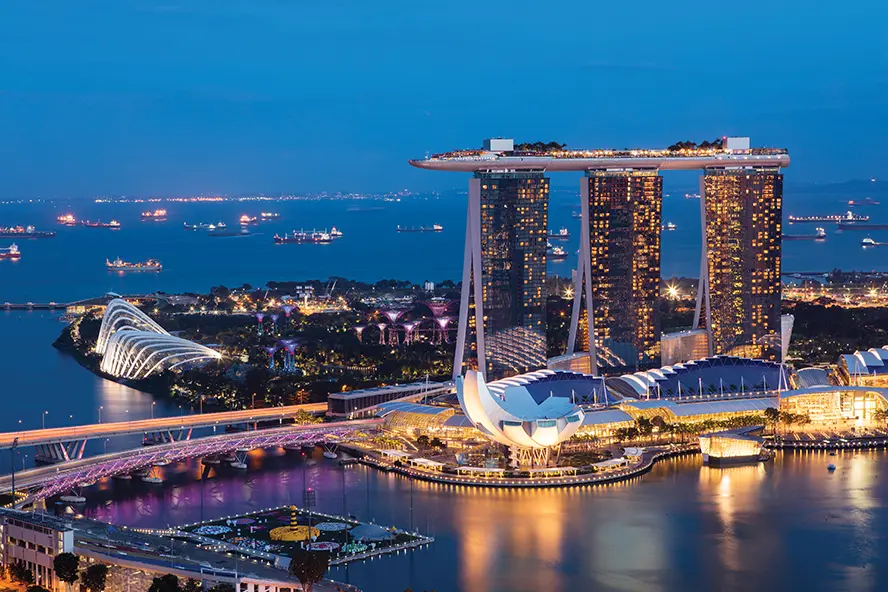
What a difference a year makes. It was August 2021 when Marina Bay Sands (MBS) reopened its casino floor after a two-week closure – the second time in as many months that it had suspended operations due to COVID-19 and yet another massive blow to the property’s bottom line.
Caught in the midst of a global pandemic, MBS parent company Las Vegas Sands later reported revenue of US$249 million from its Singapore IR for the September 2021 quarter, with Adjusted EBITDA barely in the black at US$15 million. Once renowned as the most profitable casino in the world, it was now barely profitable at all.

Fast forward 12 months and how the mood had turned, with MBS reporting 3Q22 revenues of US$756 million – up 203% year-on-year – and Adjusted EBITDA of US$343 million.
It wouldn’t be long, beamed LVS Chairman and CEO Robert Goldstein during the company’s Q3 investor call, before MBS matched and exceeded its 2019 EBITDA level of US$1.6 billion annually.
“I think we can grow to US$2 billion in the next couple of years if we get it right and the market recovers,” Goldstein forecast.
“Singapore is going to grow … the destination is more powerful than ever, our building is getting better than ever, and when you see a rebound from China and the rest of Asia, US$1.6 billion [in annual EBITDA] will look very small.”
While full recovery is still some time away, Singapore is already looming as Asian gaming’s success story thanks to its government’s proactive actions in emerging from COVID and its positioning of the city as a more attractive post-pandemic travel option than some regional peers.
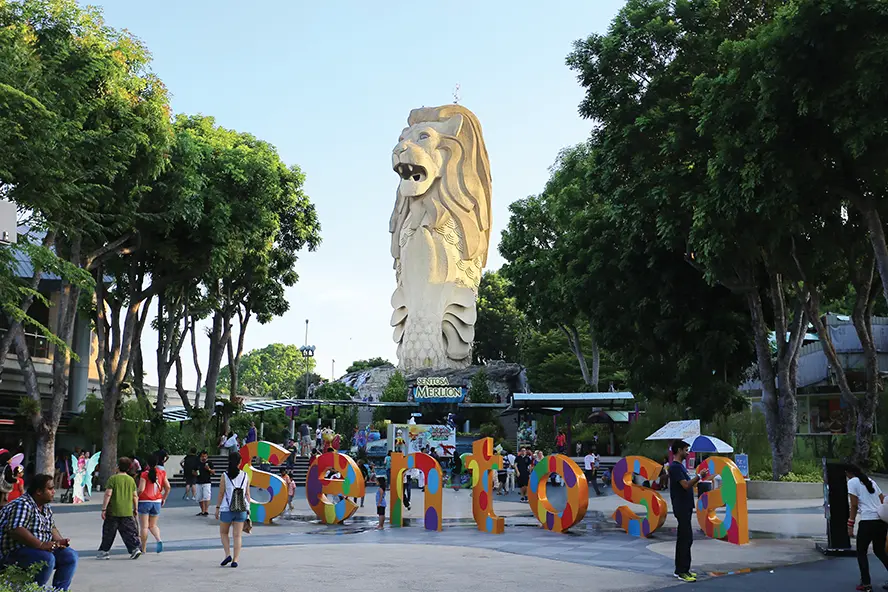 In a November note following release of the Q3 financial results of Genting Singapore – operator of Singapore’s other IR, Resorts World Sentosa (RWS) – Morgan Stanley said the sovereign state has “recovered the fastest among Asian gaming markets”, with RWS and MBS combining to generate net gaming revenue of SG$785 million (US$579 million) and EBITDA of SG$527 million (US$389 million) for the quarter. These figures place revenue at 96% of 3Q19 levels and EBITDA at 82%.
In a November note following release of the Q3 financial results of Genting Singapore – operator of Singapore’s other IR, Resorts World Sentosa (RWS) – Morgan Stanley said the sovereign state has “recovered the fastest among Asian gaming markets”, with RWS and MBS combining to generate net gaming revenue of SG$785 million (US$579 million) and EBITDA of SG$527 million (US$389 million) for the quarter. These figures place revenue at 96% of 3Q19 levels and EBITDA at 82%.
Maybank Investment Bank analyst Samuel Yin Shao Yang added separately that both the VIP and mass sectors were showing strength, aided by headwinds in some competing jurisdictions.
“On the VIP market, we understand that many Southeast Asian VIPs have not returned to Macau (due to its still-closed borders) and Australia (due to casinos in Sydney and Melbourne being reprimanded, fined and monitored more closely by regulators),” Yin wrote.
“On the mass market, we understand that it is being buoyed not only by more tourists but also Singaporeans remaining in Singapore to gamble. In the near term, we expect regional VIPs to continue gambling primarily in Singapore and locals to remain in Singapore to gamble.”
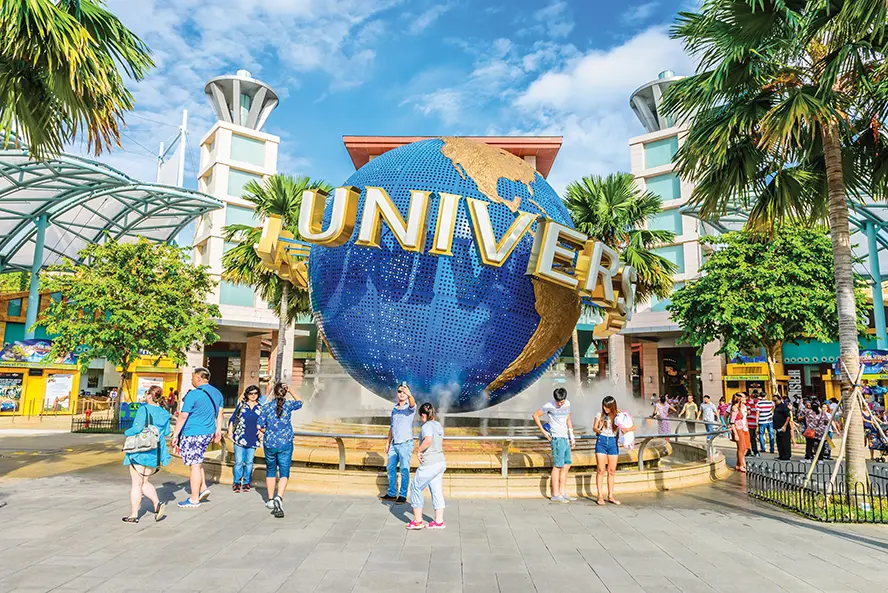 Like its local rival, RWS rebounded strongly in the September 2022 quarter, with gaming revenue up 96% year-on-year and 59% quarter-on-quarter to SG$382.0 million (US$273 million) and Adjusted EBITDA rising 143% year-on-year and 73% quarter-on-quarter to SG$249.4 million (US$178 million). Analysts had been waiting to see if the impressive rebound MBS enjoyed in Q3 would be mirrored at Sentosa, and once it was, they were quick to adjust their earnings estimates upwards – confident in the fact that revenues are going to keep on rising.
Like its local rival, RWS rebounded strongly in the September 2022 quarter, with gaming revenue up 96% year-on-year and 59% quarter-on-quarter to SG$382.0 million (US$273 million) and Adjusted EBITDA rising 143% year-on-year and 73% quarter-on-quarter to SG$249.4 million (US$178 million). Analysts had been waiting to see if the impressive rebound MBS enjoyed in Q3 would be mirrored at Sentosa, and once it was, they were quick to adjust their earnings estimates upwards – confident in the fact that revenues are going to keep on rising.
Particularly encouraging for both operators is the fact that their strong 3Q22 numbers were achieved despite passenger numbers at Singapore’s Changi Airport reaching just 58.1% of pre-COVID levels in the quarter (around 10 million). That number keeps creeping upwards, reaching 62.6% on 3.42 million passenger movements in September (with another 3.69 million passenger movements in October), however full recovery will be dependent on the return of Chinese visitors. China was Singapore’s top source tourist market in 2019 with its 3.63 million visitors comprising 19% of all visitation.
In regard to locals gaming, the Singapore Tote Board released figures in early December showing record gaming spend by Singaporeans in the financial year ended 31 March 2022, particularly on lotteries and sports betting where spend of SG$9.2 billion (US$6.8 billion) was 14% above the previous high of SG$8.1 billion (US$6.0 billion) in FY19.

Included in the Tote Board’s figures was a historical record of casino-entry levies that locals must pay to be able to access the MBS and RWS casino floors. The records show that, in the first year of operations for Singapore’s casinos in 2011/12, entry levy collections reached SG$193 million (US$143 million) but had fallen every single year since – until FY22 when they rebounded to SG$125 million (US$92 million), up from SG$114 million (US$84 million) a year earlier.
It was also higher than the SG$124 million collected in FY19 – despite FY22 being heavily impacted by COVID-19 restrictions and related periods of casino closures.
Clearly demand is surging across the board.
BIGGER IS BETTER
Setting the COVID years aside, the fact that casino levy collections in FY22 exceeded those of FY19 defied the 50% increase in the levy amount charged to locals since April 2019, when the cost of a 24-hour pass rose from SG$100 to SG$150 and that of an annual pass from SG$2,000 to SG$3,000, part of the government’s efforts to “deter” locals from casino gambling.
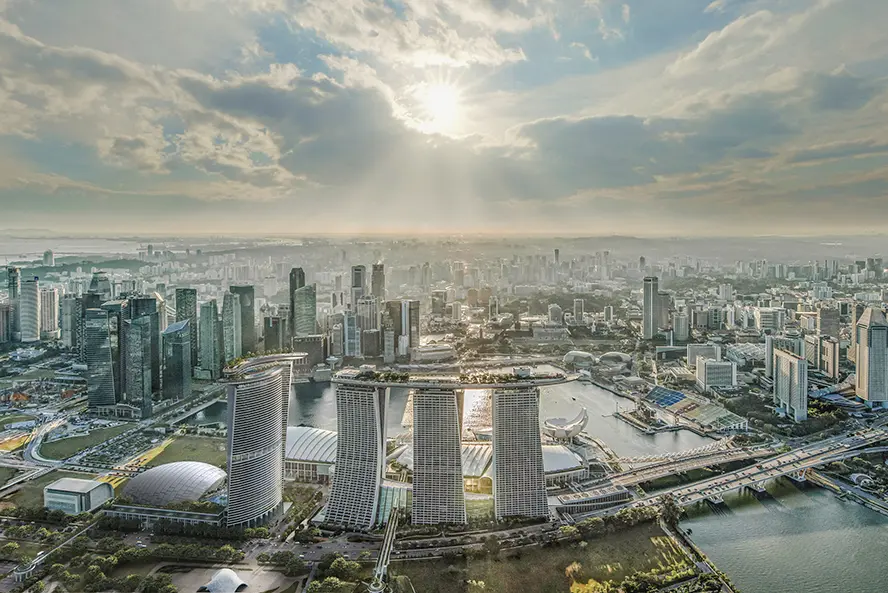
That increase formed part of a much bigger agreement between the Singapore Tourism Board and the two casino operators, under which each was granted permission to embark on massive SG$4.5 billion (US$3.3 billion) expansion projects.
RWS said at the time that it would grow the property’s gross floor area by 50%, adding 164,000 square meters of leisure and entertainment space plus an expansion of Universal Studios Singapore, a rebranding of S.E.A. Aquarium to “Singapore Oceanarium”, the addition of another 1,100 hotel rooms as part of a new “waterfront lifestyle complex”, an enhanced waterfront promenade with restaurants and retail, expanded MICE facilities and development of a driverless transport system around the property.
At MBS, where the unique three tower design has become an iconic symbol of Singapore all around the world, it was revealed that expansion would include the addition of a fourth hotel tower with a “rooftop attraction” and signature restaurant, MICE facilities comprising meeting rooms, function rooms and exhibition halls plus a state-of-the-art live entertainment arena with a seating capacity of at least 15,000 people.
MBS was also granted approval to add 1,000 more gaming machines, taking its total to 3,500, to convert the entire 55th floor of Hotel Tower 1 into more casino floor space and to purchase another 2,000 square meters of casino gaming area if required.

The pandemic has until now prevented construction, originally scheduled for completion in 2027, from getting underway, although MBS is midway through a separate US$1 billion renovation of the property that will see around 2,000 hotel rooms revamped and a variety of new food and beverage concepts introduced.
RWS has had a little more luck on the expansion front, having already begun development of new areas and attractions at Universal Studios and having handed the aquarium over to its contractor to start construction. It is also well advanced on renovation works on three of its hotels – Hard Rock Hotel Singapore, Hotel Michael and Festive Hotel – with Festive on target to reopen in 1Q23, adding 389 keys to the property’s hotel inventory.
In May, Genting Singapore President and CEO Tan Hee Teck revealed the RWS expansion would target business tourism and attracting high value tourists, with a specific focus on “young professionals”.
“RWS will therefore need to focus on this segment and develop the facilities, restaurants and hotel rooms to cater to those people,” he told investors at the company’s AGM.
Genting Singapore added in follow-up materials that the “obvious trend would be the arrival of younger professionals” and that “the management team would be incorporating initiatives in RWS 2.0 to address this trend of change in demographics.”
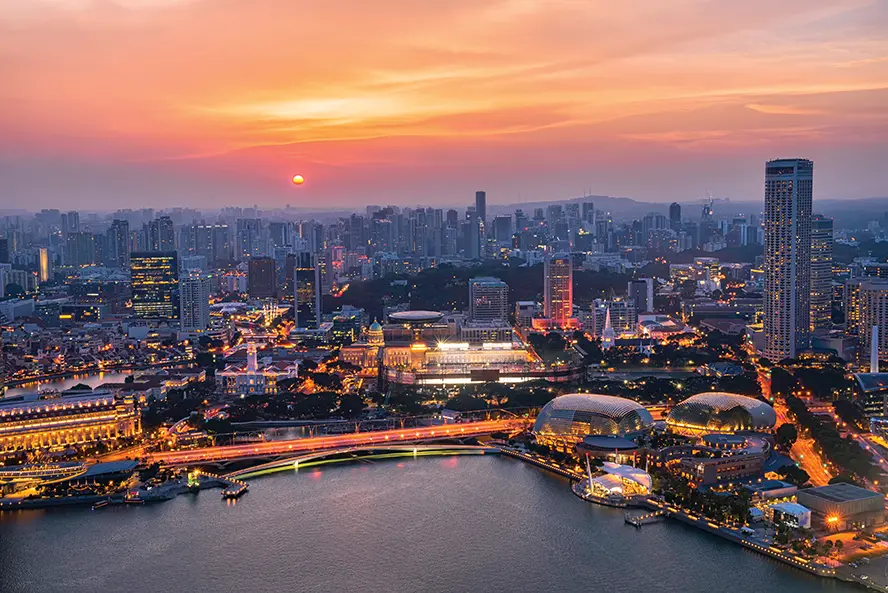 Perhaps looking to gain some market share from its local rival, RWS has made some major moves on the management front too with the appointment of former MBS executive Andrew MacDonald as Chief Casino Officer and former Singapore Business Federation CEO Lam Yi Young as its new Deputy CEO. As of 30 September 2022, RWS held total GGR market share of 36%, according to Nomura analysts, with VIP at 38% and mass at 32%.
Perhaps looking to gain some market share from its local rival, RWS has made some major moves on the management front too with the appointment of former MBS executive Andrew MacDonald as Chief Casino Officer and former Singapore Business Federation CEO Lam Yi Young as its new Deputy CEO. As of 30 September 2022, RWS held total GGR market share of 36%, according to Nomura analysts, with VIP at 38% and mass at 32%.
But greater market share or not, the consensus is that Singapore’s gaming pie continues to rise, with Bernstein estimating market GGR to recover to 107% of 2019 levels in 2024 and to 116% in 2025.
“With the opening of Phase 2 developments for Resorts World and Marina Bay Sands, we expect the market to [further] grow with the expansions beyond 2025,” the brokerage wrote.
TEAM EFFORT
Almost 12 months to the day after the expansion projects of MBS and RWS were revealed in April 2019, the Ministry of Home Affairs announced that Singapore’s gaming regulator would undergo a makeover of its own.
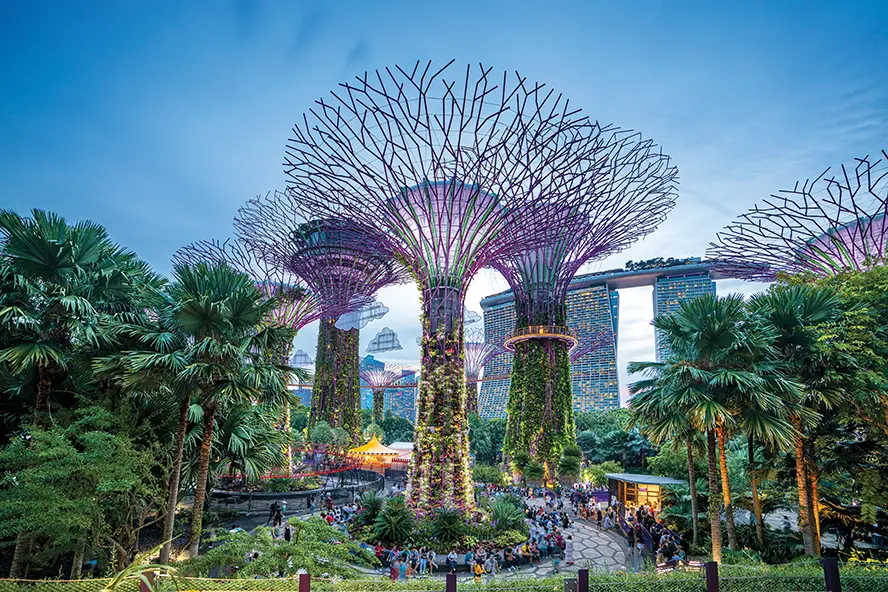 In a comprehensive shake-up of the industry’s regulatory model, the Singapore Ministry for Home Affairs (MHA) outlined plans to establish a new entity called the Gambling Regulatory Authority (GRA), tasked with regulating the entire gambling landscape in Singapore. The GRA, it was revealed, would replace the Casino Regulatory Authority (CRA) – established in 2008 following the award of Singapore’s first and only casino licenses to Las Vegas Sands and Genting Group.
In a comprehensive shake-up of the industry’s regulatory model, the Singapore Ministry for Home Affairs (MHA) outlined plans to establish a new entity called the Gambling Regulatory Authority (GRA), tasked with regulating the entire gambling landscape in Singapore. The GRA, it was revealed, would replace the Casino Regulatory Authority (CRA) – established in 2008 following the award of Singapore’s first and only casino licenses to Las Vegas Sands and Genting Group.
It would also bring under its umbrella the regulation of remote gambling services and “fruit machines” previously governed by the Gambling Regulatory Unit, terrestrial gambling services overseen by the Singapore Totalisator Board, illegal gambling activities enforced by the Singapore Police Force and even responsible gambling measures currently controlled by the Ministry of Social and Family Development.
This, the Ministry of Home Affairs said at the time, would “allow the Government to more effectively stay ahead of technological and gambling trends, respond more adequately to emerging gambling products, and take a more holistic and coherent approach to gambling policies.”
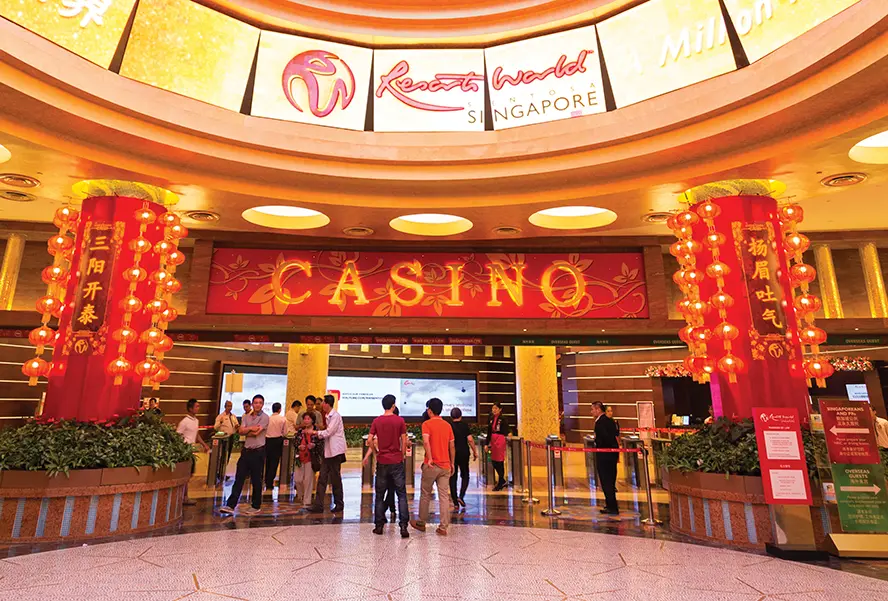 The GRA officially took charge on 1 August 2022.
The GRA officially took charge on 1 August 2022.
In the lead up to the establishment of the new regulator, Singapore also passed two new bills which set the framework under which the GRA now operates. Most notable of these was the Gambling Control Bill, which criminalizes proxy betting and underage gambling but also places the onus onto Singapore’s casino operators to ensure such infractions do not take place.
“Casinos will be liable to regulatory action, like financial penalties, if they fail to enforce this,” said Minister of State for Home Affairs, Desmond Tan, when the bill was passed in March.

Other changes under the Gambling Control Bill include exempting “social gambling” activities from prosecution and the establishment of a licensing regime for products such as fruit machines, Singapore Pools’ products and gambling at private establishments.
The move to a whole new regulatory regime came as somewhat of a surprise given that Singapore has long been viewed as the ultimate IR success story – the gold standard, as some call it.
Not only did the opening of these two large-scale integrated resorts boost the sovereign state’s international tourism presence – to this day MBS ranks among the most Instagrammed buildings in the world – both have proven to be hugely profitable while operating under the Singapore government’s model of tight, responsible regulation.
The regulatory revamp has nevertheless also been lauded as a positive move, with the issue discussed at length during a panel session organized by Inside Asian Gaming at August’s Australasian Gaming Expo in Sydney.
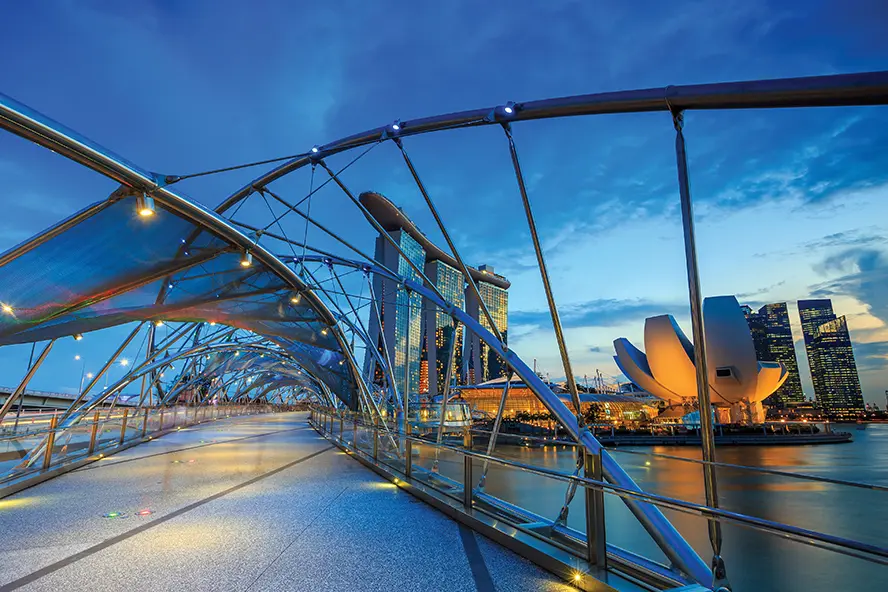 “It’s a very good decision,” explained Peter Cohen, former head of Victoria’s gaming regulator and an advisor to the Singapore government on regulatory matters.
“It’s a very good decision,” explained Peter Cohen, former head of Victoria’s gaming regulator and an advisor to the Singapore government on regulatory matters.
“The idea of having a separate casino regulator, separate from your other gaming regulators, is a problem, and the reason it’s a problem is that your standalone casino regulator is more easily captured by the casino operator – not deliberately – but the inspectors can get too close to the casinos they regulate.
“If you have a diverse regulator who regulates casinos and betting on horses and [fruit] machine venues, you can rotate your inspectors and you get less opportunity for those people to be captured by the casino industry.
“By combining them you can spread them around, diversify their skill set. They are more engaged as a work-force and you get a better regulator.”
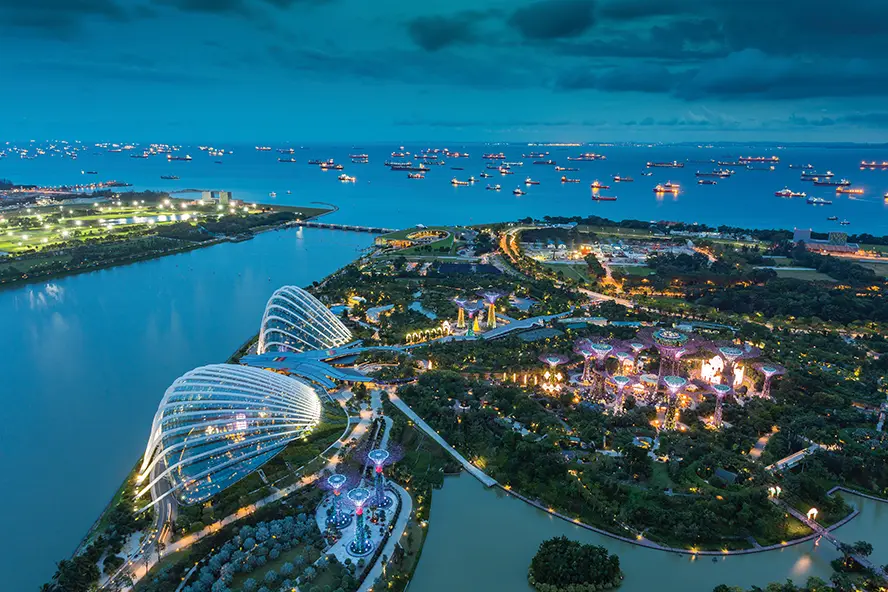 Jamie Nettleton, Gambling, Commercial and IP Partner at Addison’s law firm, agrees.
Jamie Nettleton, Gambling, Commercial and IP Partner at Addison’s law firm, agrees.
“I think the Singapore model is one where, in my view, they got it right in the regulation of casinos when they set it up, and they are right to revert to the model it is now,” he said. “That’s good policy and they’ve taken a long time to make sure they get it right.”






